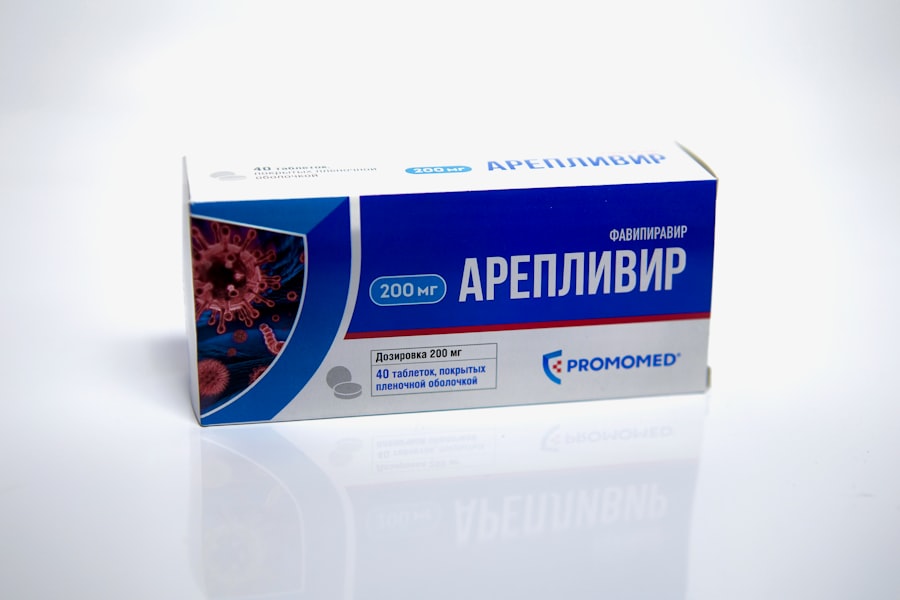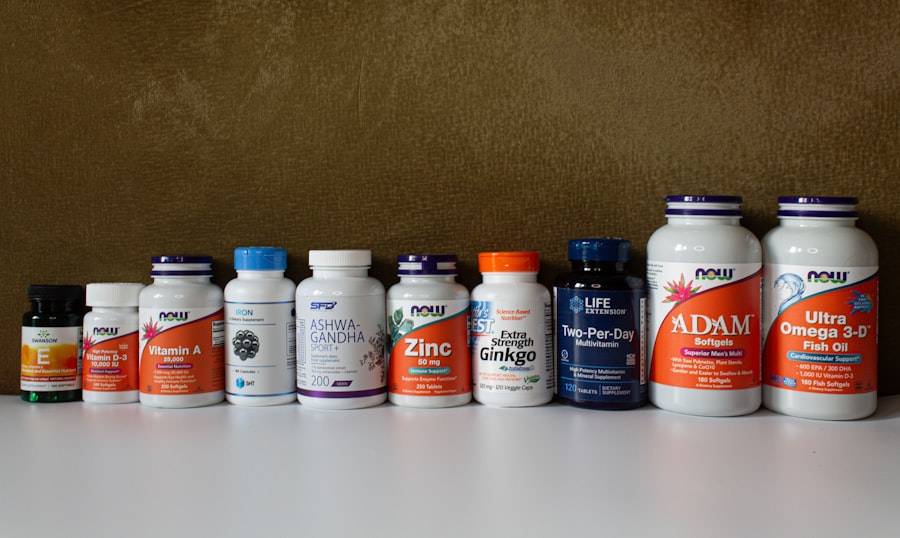When it comes to dietary supplements, understanding the role of the Food and Drug Administration (FDA) is crucial for making informed choices about your health. The FDA is a federal agency responsible for protecting public health by ensuring the safety, efficacy, and security of various products, including food, drugs, and supplements. However, it’s important to note that the FDA does not approve dietary supplements in the same way it does prescription medications.
Instead, the agency regulates supplements under a different set of guidelines established by the Dietary Supplement Health and Education Act (DSHEA) of 1994. This means that while the FDA monitors the safety of supplements once they are on the market, it does not evaluate them for effectiveness before they reach consumers. You might wonder how this affects you as a consumer.
Since the FDA does not require pre-market approval for dietary supplements, manufacturers are responsible for ensuring that their products are safe and accurately labeled. This lack of oversight can lead to variability in quality and potency among different brands and products. Therefore, understanding the nuances of FDA regulation is essential for making safe choices regarding your health and wellness.
Key Takeaways
- FDA approval for supplements is not mandatory, but it ensures safety and quality
- Look for an FDA disclaimer on the supplement label to determine if it is FDA approved
- FDA approval for supplements is important for ensuring safety, efficacy, and quality
- Common misconceptions include the belief that all supplements are FDA approved
- Check for ingredients, serving size, and manufacturer information on supplement labels
- The FDA regulates supplements to ensure safety and quality, but does not test or approve them
- FDA approved supplements have undergone rigorous testing, while FDA registered supplements have not
- FDA approval matters for your health because it ensures the supplement is safe and effective
- Using non-FDA approved supplements can pose risks such as contamination and adverse effects
- Report non-FDA approved supplements to the FDA through the Safety Reporting Portal
- Alternatives to non-FDA approved supplements include consulting a healthcare professional for guidance
How to Determine if Your Supplement is FDA Approved
Determining whether a supplement is FDA approved can be a bit misleading, as the term “FDA approved” is often misused in marketing. Since dietary supplements do not undergo the same rigorous approval process as pharmaceuticals, you will not find a list of FDA-approved supplements. Instead, you should look for products that comply with Good Manufacturing Practices (GMP) and are manufactured by reputable companies.
These companies often voluntarily submit their products for third-party testing to verify quality and potency. To ensure that you are choosing a safe supplement, you can start by checking the manufacturer’s website for information about their compliance with GMP standards. Additionally, look for certifications from independent organizations such as NSF International or the United States Pharmacopeia (USP).
These certifications indicate that the product has been tested for quality and purity, providing an extra layer of assurance that you are consuming a reliable supplement.
The Importance of FDA Approval for Supplements

While dietary supplements do not require FDA approval before hitting the shelves, understanding the importance of this regulatory framework can help you make better choices. The FDA’s role in monitoring supplements post-market is vital for consumer safety. If a product is found to be unsafe or misbranded, the FDA has the authority to take action against the manufacturer, which can include product recalls or legal penalties.
This oversight helps to ensure that harmful or ineffective products do not remain on the market for long periods. Moreover, FDA regulations encourage transparency in labeling and advertising. When you choose a supplement from a reputable manufacturer that adheres to these guidelines, you can have greater confidence in the product’s safety and efficacy.
This is particularly important in a market flooded with various options, where misleading claims can easily confuse consumers. By understanding the significance of FDA regulations, you empower yourself to make informed decisions about your health.
Common Misconceptions about FDA Approval for Supplements
| Misconception | Reality |
|---|---|
| Supplements are FDA approved | Supplements do not require FDA approval before being marketed |
| FDA ensures the safety and effectiveness of supplements | FDA regulates supplements after they are on the market and can take action if they are found to be unsafe |
| Supplements are thoroughly tested by FDA | Supplement manufacturers are responsible for ensuring the safety and labeling of their products |
One common misconception is that all dietary supplements must be approved by the FDA before they can be sold. This misunderstanding can lead to confusion and mistrust among consumers. In reality, while the FDA does regulate supplements, it does not require pre-market approval like it does for prescription medications.
This means that many products can enter the market without undergoing rigorous testing for safety or effectiveness. Another misconception is that “natural” supplements are inherently safe because they are derived from natural sources. While many natural ingredients can be beneficial, they are not automatically safe or effective just because they come from nature.
Some natural substances can interact with medications or cause adverse effects. Therefore, it’s essential to approach all supplements—whether synthetic or natural—with caution and to consult healthcare professionals when necessary.
What to Look for on Supplement Labels
When examining supplement labels, there are several key elements you should pay attention to in order to make informed choices. First and foremost, look for the name of the product and its intended use. The label should clearly state what health benefits the supplement claims to provide.
Additionally, check for a complete list of ingredients, including any fillers or additives that may be present. Another important aspect is the dosage information. The label should specify how much of each active ingredient is contained in each serving and provide guidance on how many servings you should take daily.
This information is crucial for ensuring that you do not exceed recommended dosages, which could lead to adverse effects. Lastly, look for any certifications or seals from third-party testing organizations, as these can provide additional assurance regarding the product’s quality and safety.
The Role of the FDA in Regulating Supplements

The FDA plays a significant role in regulating dietary supplements through its enforcement of laws designed to protect consumers. While it does not approve supplements before they reach the market, it monitors them once they are available to ensure they meet safety standards. The agency investigates reports of adverse events related to supplements and can take action against manufacturers who violate regulations.
In addition to monitoring post-market safety, the FDA also provides guidance on labeling and marketing claims made by supplement manufacturers. This helps prevent misleading information from reaching consumers and ensures that health claims are substantiated by scientific evidence when possible. By understanding the FDA’s role in regulating supplements, you can better navigate the complex landscape of dietary products available today.
The Difference Between FDA Approved and FDA Registered Supplements
It’s essential to clarify the distinction between “FDA approved” and “FDA registered” when discussing dietary supplements. As previously mentioned, dietary supplements do not receive pre-market approval from the FDA; therefore, no supplement can be labeled as “FDA approved.” However, some manufacturers may use terms like “FDA registered” to imply a level of endorsement or approval that does not exist. In reality, all dietary supplement manufacturers must comply with certain regulations set forth by the FDA, including registering their facilities and adhering to Good Manufacturing Practices (GMP).
While this registration indicates that a manufacturer follows specific guidelines, it does not imply that their products have been evaluated or approved by the FDA for safety or efficacy. Understanding this difference is crucial for making informed decisions about which supplements to trust.
Why FDA Approval Matters for Your Health
While dietary supplements do not require FDA approval before being sold, understanding why this matters for your health is essential. The lack of pre-market approval means that consumers must be vigilant when selecting supplements. Products may vary widely in quality, potency, and safety due to minimal regulatory oversight before they reach store shelves.
By choosing supplements from reputable manufacturers who adhere to FDA guidelines and third-party testing standards, you can significantly reduce your risk of consuming harmful or ineffective products. Additionally, being aware of potential red flags—such as exaggerated health claims or lack of transparency in labeling—can help you make safer choices for your well-being.
Potential Risks of Using Non-FDA Approved Supplements
Using non-FDA approved supplements carries inherent risks that you should be aware of as a consumer. Without regulatory oversight, there is no guarantee that these products are safe or effective. Some non-approved supplements may contain harmful ingredients or contaminants that could pose serious health risks.
For instance, certain weight loss or bodybuilding supplements have been found to contain unlisted substances that can lead to adverse reactions. Moreover, relying on non-FDA approved supplements may lead you to overlook more effective treatments or lifestyle changes that could benefit your health. It’s essential to approach supplementation with caution and prioritize evidence-based practices over unverified claims made by manufacturers seeking profit rather than your well-being.
How to Report Non-FDA Approved Supplements
If you encounter a supplement that you believe poses a risk to public health or violates labeling regulations, it’s important to take action by reporting it to the FDYou can file a report through their MedWatch program, which allows consumers and healthcare professionals to report adverse events related to dietary supplements and other products regulated by the agency. When reporting a non-FDA approved supplement, provide as much detail as possible about the product in question, including its name, manufacturer, lot number, and any adverse effects experienced. Your report can help protect others from potential harm and contribute to ongoing efforts to ensure consumer safety in the supplement industry.
Alternatives to Non-FDA Approved Supplements
If you’re concerned about using non-FDA approved supplements but still want to support your health through supplementation, there are several alternatives worth considering. First and foremost, consult with a healthcare professional who can guide you toward evidence-based options tailored to your specific needs. They may recommend certain vitamins or minerals based on your individual health status or dietary deficiencies.
Additionally, consider focusing on whole foods as your primary source of nutrients rather than relying solely on supplements. A balanced diet rich in fruits, vegetables, whole grains, lean proteins, and healthy fats can provide most of the nutrients your body needs without the risks associated with unregulated products. If supplementation is necessary due to specific health concerns or dietary restrictions, opt for reputable brands that prioritize quality and transparency in their manufacturing processes.
In conclusion, understanding FDA approval for dietary supplements is essential for making informed choices about your health. By being aware of how to determine if a supplement meets safety standards and recognizing common misconceptions surrounding FDA regulation, you empower yourself as a consumer. Always prioritize quality over marketing claims and consult healthcare professionals when necessary to ensure that your supplementation aligns with your overall health goals.
It provides a comprehensive overview of how the FDA regulates these products and what it means for consumers. You can read more about it in this related article: Is My Supplement FDA Approved?.
WATCH THIS! The $14 Billion Lie Hiding in America’s Drugstore
FAQs
What does it mean for a supplement to be FDA approved?
For a supplement to be FDA approved, it means that the Food and Drug Administration has reviewed the supplement’s safety and effectiveness and has determined that it is safe for consumption and meets the quality standards set by the FDA.
Are all supplements FDA approved?
No, not all supplements are FDA approved. The FDA does not have the resources to review and approve every supplement on the market. Instead, it is the responsibility of the supplement manufacturer to ensure that their products are safe and meet FDA regulations.
How can I find out if my supplement is FDA approved?
You can check if your supplement is FDA approved by looking for an FDA registration number or by searching the FDA’s website for a list of approved supplements. However, it’s important to note that not all supplements go through the FDA approval process.
What should I do if my supplement is not FDA approved?
If your supplement is not FDA approved, it’s important to do thorough research on the product and consult with a healthcare professional before taking it. Look for supplements that have been third-party tested for quality and safety.
Is it safe to take supplements that are not FDA approved?
While not all supplements go through the FDA approval process, it doesn’t necessarily mean they are unsafe. However, it’s important to be cautious and do your research before taking any supplement, especially if it is not FDA approved.
